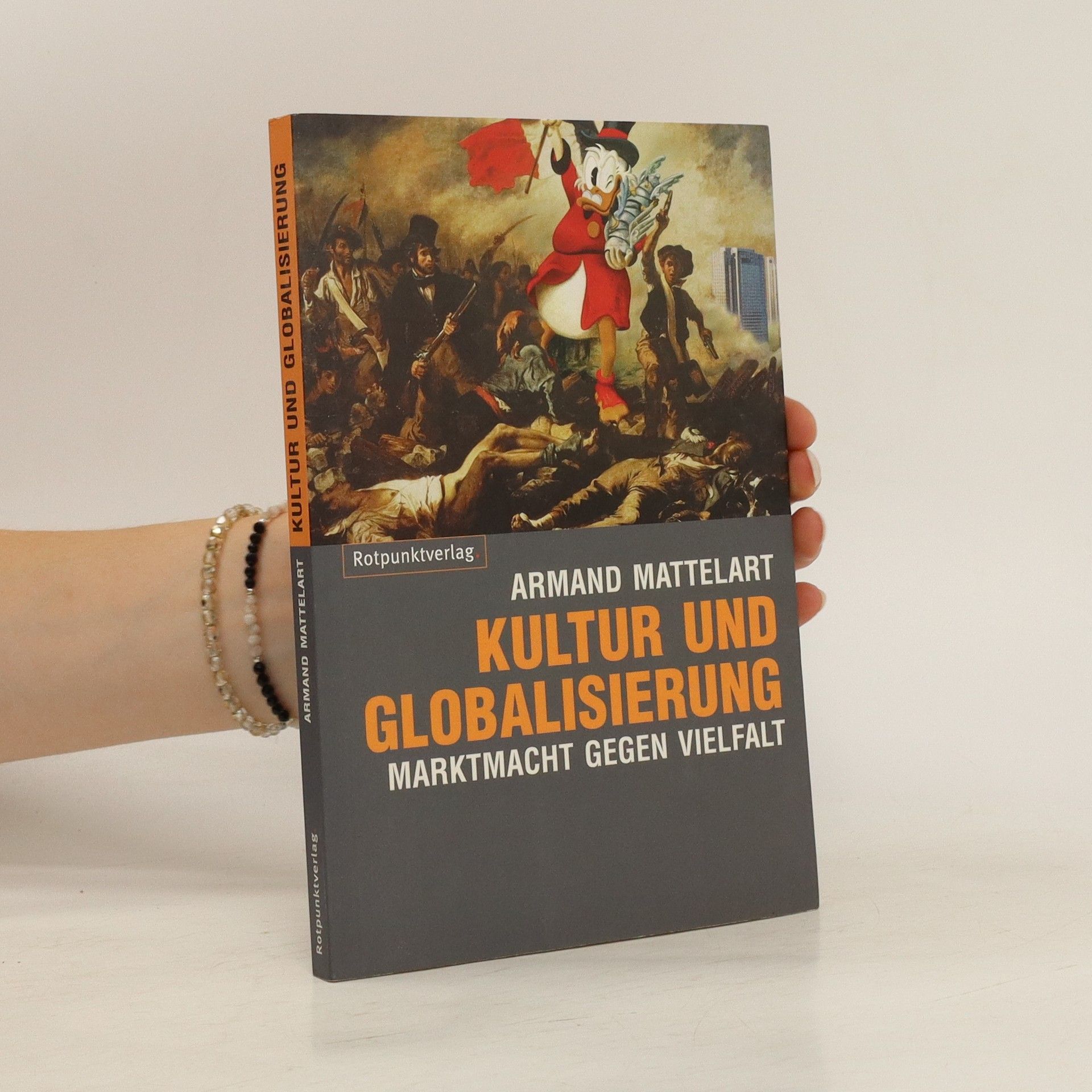How to Read Donald Duck
- 208 pages
- 8 hours of reading
Censored and condemned, this is a highly controversial Marxist critique of how our favourite cartoons are vehicles for capitalist ideology.
Armand Mattelart is a pivotal figure in communication theory and media studies. His early work focused on analyzing communication strategies within the context of ideological struggles in Latin America, critically examining the influence of North American cultural imperialism. Over time, Mattelart emerged as a leading theoretician in information sciences, with his writings delving deeply into the political economy of mass media and processes of globalization. His approach combines critical thinking with an emphasis on the historical and social context of media practices.





Censored and condemned, this is a highly controversial Marxist critique of how our favourite cartoons are vehicles for capitalist ideology.
Marktmacht gegen Vielfalt
»Globale kulturelle Vielfalt« war so lange selbstverständlich, wie sich nur eine Weltminderheit dafür interessierte. Seitdem sie thematisiert wird, ist sie in Gefahr. Von der Kultur zur Kommunikation, vom Volk zur »Öffentlichkeit«, vom Bürger zum Konsumenten: In den vergangenen 200 Jahren ging es immer um die Spannungen zwischen dem im Zeichen des Freihandels stehenden Projekt der »universellen Warenrepublik« und dem Universalitätsanspruch der von der Aufklärung verkündeten Werte, zwischen Bildungsbürgerkultur und Alltagskultur, zwischen dem Ethnozentrismus des Kulturkolonialismus und den Kämpfen um die Bewahrung der eigenen Identität, zwischen dem geschlossenen Raum des Nationalen und den grenzüberschreitenden Tendenzen usw. Heute besteht eine Frontstellung zwischen zwei unterschiedlichen Kulturauffassungen: hier eine auf dem global democratic marketplace angebotene »Dienstleistung«, dort ein »öffentliches Gemeingut«, ohne das das Wort »Demokratie« keinen wirklichen Sinn hätte. Innerhalb eines Globalisierungsprojekts, in dem der Markt allein den Takt vorgibt, wird »globale kulturelle Vielfalt« immer mehr zur Leerformel. Anderseits zeigt sich nirgendwo so deutlich wie in der Kultur, dass keine fortschrittliche Position gegen deren globale Dimension anrennen kann. Die Frage stellt sich auch hier: Welche Art von Globalisierung wollen wir?
La mondialisation des industries culturelles a projeté les " produits de l'esprit " au cœur des négociations sur la libéralisation des échanges. Le thème de la diversité culturelle, longtemps tenu en lisière, a fait une entrée remarquée dans les grandes instances internationales. La préservation de la diversité doit-elle être du ressort des politiques publiques ou peut-elle se satisfaire de la multiplication de l'offre marchande de biens et services ? L'idée même de diversité culturelle recouvre des réalités et des positions contradictoires. Axe critique du nouvel ordre mondial, elle est au principe d'une démocratie-monde. Mais elle est aussi la caution du nouveau mode de gestion du marché global. Quel est le lien entre exception et diversité culturelle ? Pourquoi l'Union européenne a-t-elle troqué la première pour la seconde ? S'agit-il seulement d'assurer la possibilité à chaque ensemble culturel de produire ses propres images ou d'aller au-delà et de légitimer une nouvelle philosophie générale qui soustraie les biens communs de l'humanité à la loi du libre-échange ?
Welche Beziehungen gibt es zwischen der These vom Ende der Ideologien und der Erfindung des World Wide Web? Wie kam es dazu, dass die interaktive Demokratie zur Sache der think tanks geworden ist? Welche Rolle spielt der Krieg in der „Revolution der Information“? Um Fragen wie diese zu beantworten und um zu verstehen, wie die Informationsgesellschaft entstanden ist, untersucht der Autor längere Zeitperioden aus einer geopolitischen Sicht. Er widmet seine Aufmerksamkeit den Machtkonstellationen und richtet sie auf die Argumente, die den Begriff „Informationsgesellschaft“ legitimieren. Dabei geht er der Entstehungsgeschichte eines Versprechens auf den Grund, das die „Neugestaltung der Welt“ proklamiert.
Geschichte der Ideen und Strategien globaler Vernetzung